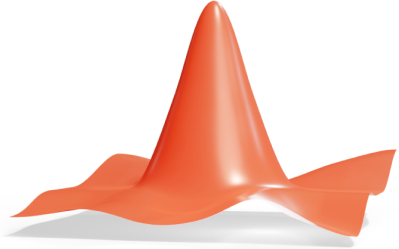Circle of Apollonius
The Circle of Apollonius is another approach to defining a circle given by a line segment .
Theory
The Circle of Apollonius
The circle of Apollonius is the locus of all points satisfying for a given angle . Different values of result in different circles. The line segment becomes a chord in this circle, and the angle becomes an inscribed angle spanning the circular arc .
The triangle is an isosceles triangle, since the legs and are both equal to the radius of the circle. You therefore know that and are equal. You can now construct these at and , when is given, with the help of the following formula:
The point where the angle rays meet each other is the center of a circle passing through the points and . You can now use the radius and center to construct the circle with the use of a compass tool.
Example 1
Construct a triangle where , angle , the distance from down to the line segment is and is closer to than .
Draw an auxiliary figure:
You start by constructing the line . Then you construct perpendicular lines from both and and set the height to cm.
You must now find a way to construct , and it’s here you use the circle of Apollonius. The only thing you know is that is supposed to be on the dotted line that is cm from , but you don’t know where.
On the other hand, you do know from the circle of Apollonius that if you make a circle that goes through and , the center of the circle forms the central angle to any inscribed angle that spans . Therefore you can use that to find the angles and . You can use Formula ():
Thus, you construct ° angles at and so that they turn inwards. The intersection point of these angle rays is the center of the circle of Apollonius.
Since and are both °, the angle .
This fits with being the central angle of . Thus, you can draw the circle with center in and radius . You find where the circle crosses the dotted line. This happens at two points, but the task tells you to choose the one closest to . Thus, you can draw the lines between , and so that the triangle is complete.
Isn’t it beautiful?























